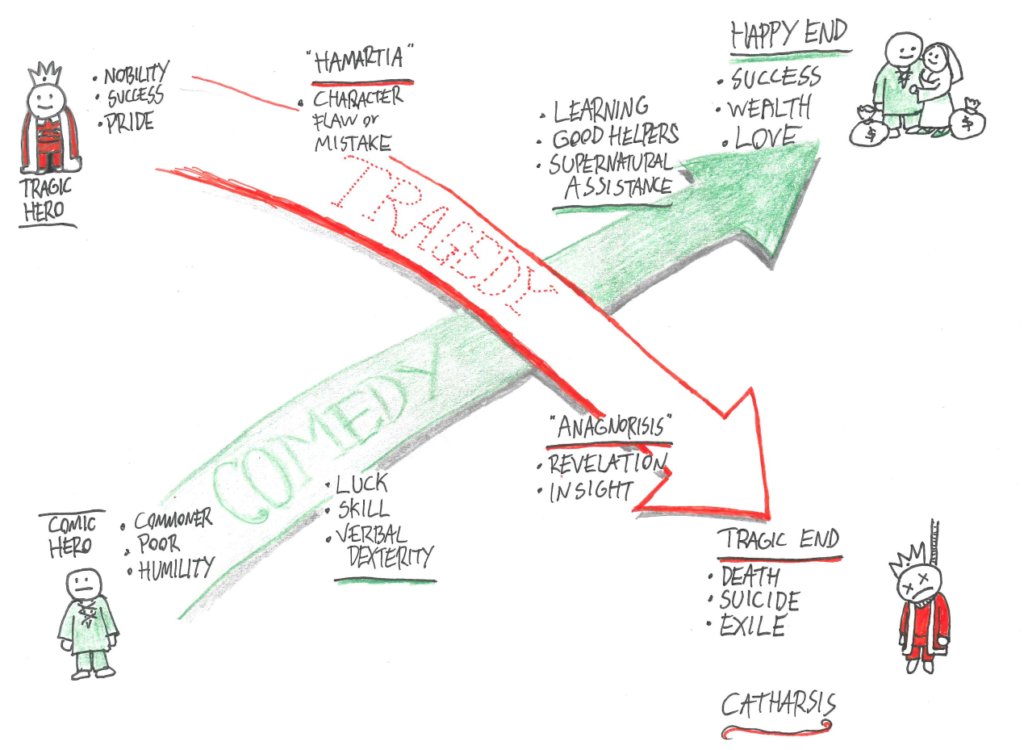What Aristotle had to say about comedy has been lost to posterity. What has been preserved, however, is a small number of Ancient Greek comedies from which we might extrapolate some typical comedic traits. Also, we get the sense that a comedy is in many ways the opposite of a tragedy, so in order to draw up an outline of what a comedy is, it might be useful to compare it with the tragedy genre.
Low to high
Where a tragedy presents the downfall of someone high-born who makes one or more fatal mistakes, a comedy usually presents the rise of someone from a lower stage in society who rises to success through a combination of luck and opportunistic skill.

A tragic hero is doomed by the gods, whereas the comedic protagonist has the Fates on their side. Typically, a comedic hero faces a number of obstacles relating to social norms. For example, the father of the love object might oppose the desired marriage; or financial success and social climbing might be achieved in the face of societal resistance.
Characters
The protagonist of a comedy should be someone we root for. Not only must they be skillful, clever and lucky, but they must also have our sympathy. We would not enjoy a comedy in which an unworthy protagonist is rewarded with love and material success. Sometimes, however, the protagonist of a comedy will be an unlikable, nasty person. In such a case we derive satisfaction from seeing them receive their just desserts: they are usually punished according to their sins. In such cases, comedies are more like funny tragedies, in that a rich and successful person falls to the bottom of society, but in a way that makes us laugh and feel satisfaction.
Humour and purpose
As is the case with tragedy, the thematic and structural traits of a play is what makes it a comedy. It does not in fact need to be funny. That being said, many comedies are designed to make the audience laugh, in part because the function of comedies tends to be didactic in a societal framework. Again, we are supposed to learn something from watching a comedy, and humour is a powerful tool for saying something about the way in which society works. Typically, a comedy will make fun of authority figures and often has satirical purposes. For that reason, comedies can be risky business, politically speaking, because someone might be offended.
There are many examples, from Ancient times onward, of playwrights who have met severe repercussions because of something they have stated in a comedy. Furthermore, like with tragedies, the actions of the protagonist are central. The ancient Greeks believed that what you do is the benchmark of who you are as a person, whereas inborn traits, aptitudes and inclinations were viewed as less central.
The satyr play is an extreme form of comedic burlesque that came out of the classical world. Its humour is often satirical (the word satire derives from this type of play), sexual and scatological (that is, it deals with bodily functions of the kind that would shock a prim and proper audience).
In the next section, we will move forward in time almost 2000 years, to the English Renaissance, so we can take a look at what happened with the classical genre frameworks on the English theatre stage.
Next: English Drama
